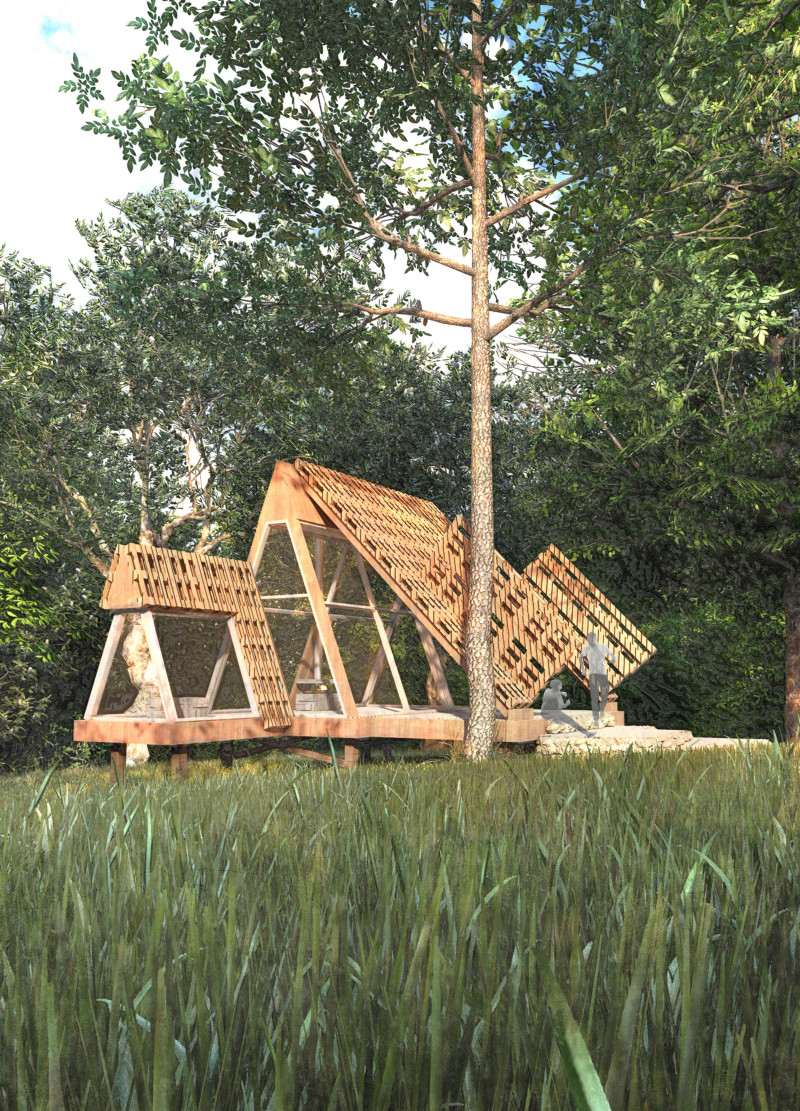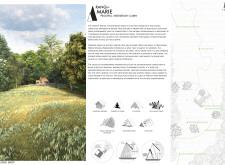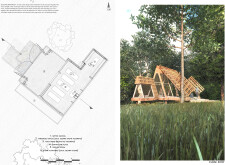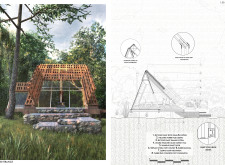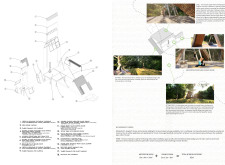5 key facts about this project
Rangimarie: Peaceful Meditation Cabin is a meditation space located in the scenic landscapes of New Zealand. Designed for quiet reflection, the cabin aims to create a calming atmosphere that connects visitors with nature. Inspired by traditional Māori architectural forms, it features distinct gabled roofs and A-frame profiles that blend harmoniously with the environment. The meditation area is elevated, which reduces its impact on the land and symbolizes a journey toward spiritual elevation.
Materiality
The cabin uses recycled wooden pallets for its exterior, reflecting a commitment to sustainability. This choice not only supports environmental conservation but also provides both visual interest and shade. Inside, locally sourced stone serves as flooring, offering durability and warmth. This connection to local materials enhances the sense of place. Extensive use of glass throughout the design allows for unobstructed views, encouraging occupants to engage with the surrounding landscape.
Building Orientation
Building orientation is a vital consideration in the design. The structure is positioned to take advantage of morning sun, which helps retain heat in the stone flooring. The orientation of the essence room, facing north, captures this sunlight, while the pallet roof offers shade during the warmer afternoon hours. This careful planning balances light and temperature, creating a comfortable space for meditation.
Key Features
Rangimarie includes unique design features that enhance the meditative experience. For example, the stone floor incorporates a netting element, creating an illusion of floating when occupied. This design adds a layer of sensory experience for users. The wooden pallet shell surrounds the glass core, providing a clear transition between indoor and outdoor areas. Surrounding the cabin, a ring of trees creates a tranquil setting with simple seating made from recycled pallets. This encourages visitors to relax and immerse themselves in nature.
Each of these elements contributes to an atmosphere of peace and reflection. The relationship between the building and its natural surroundings promotes mindfulness and encourages deeper connections to the environment. The design of Rangimarie exemplifies how architecture can support well-being through thoughtful integration with nature.


